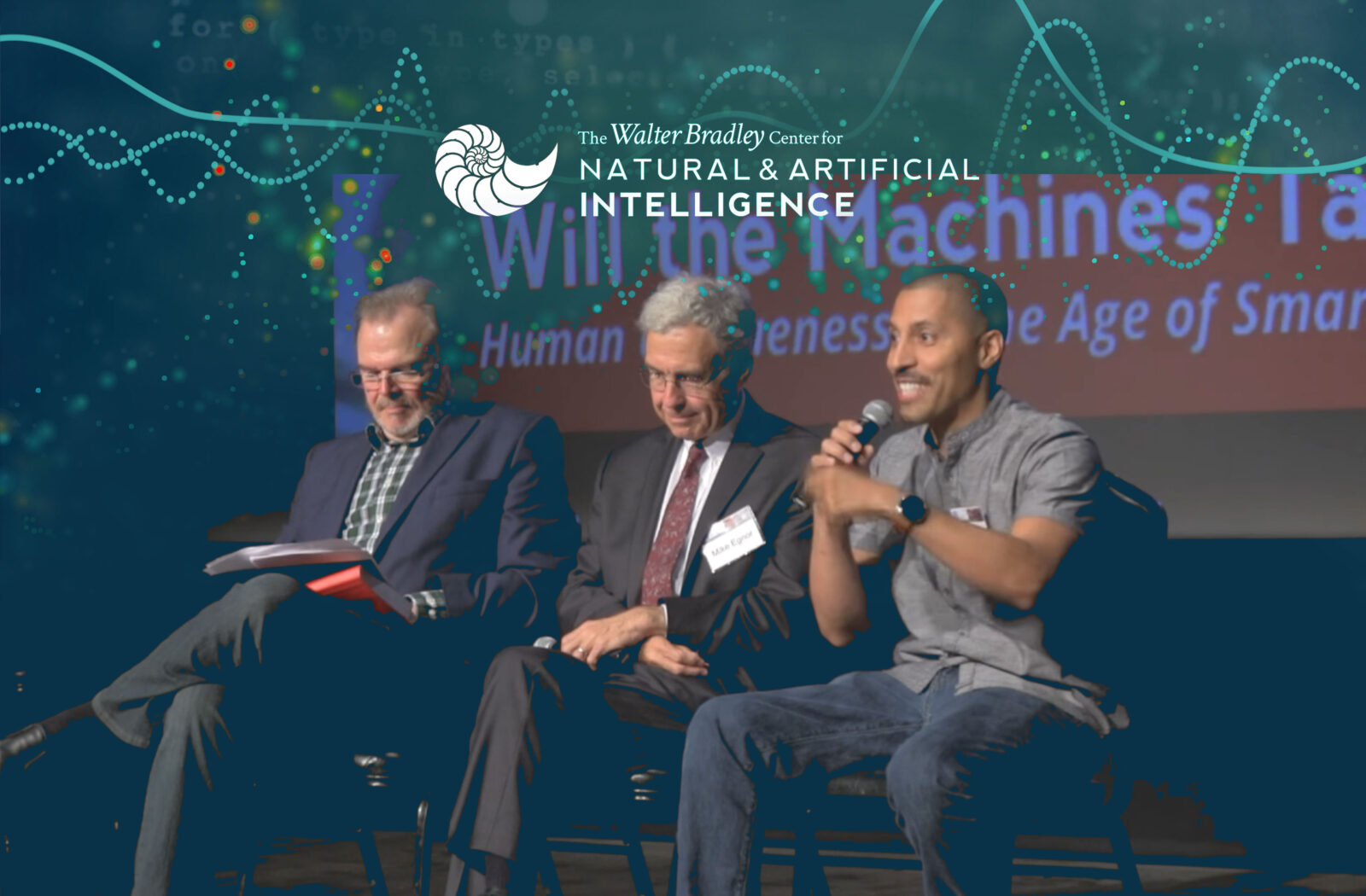Will the Machines Take Over?
Human Uniqueness in the Age of Smart Machines View at YouTube(Note: Suboptimal audio resolves after the first minute.)
“Will the Machines Take Over? Human Uniqueness in the Age of Smart Machines” an event celebrating the launch of Discovery Institute’s new Walter Bradley Center for Natural and Artificial Intelligence. Physicist Stephen Hawking warned humanity that “the development of artificial intelligence (AI) could spell the end of the human race… Humans, who are limited by slow biological evolution, couldn’t compete, and would be superseded.” To meet the challenge of AI, Hawking urged the creation of “some form of world government.” But will AI really spell the doom of the human race? Is it truly capable of making humans obsolete? Or could it provide an opportunity for greater creativity and productivity based on a renewed understanding of human uniqueness?
Featuring
- Robert J. Marks, PhD: Director, Walter Bradley Center for Natural and Artificial Intelligence and Distinguished Professor of Electrical & Computer Engineering, Baylor University
- George Montañez, PhD: Data Scientist, Microsoft
- Michael Egnor: Neurosurgeon, Stony Brook University
Resources
What’s at Stake in the Debate over AI, Bradley Center July 4, 2018
Human exceptionalism, the view that humans have a unique status in the created order, is foundational to the Judeo-Christian tradition. According to this tradition, humans alone among physically embodied beings are created in the image of God. The superiority of human intellect and judgment is not merely a difference in degree with other living forms but a difference in kind. Notably, human language ability and moral agency are without parallel in the physical realm.
The accelerating performance of artificial intelligence (AI), also referred to as machine or computational intelligence, is increasingly cited as reason to doubt human exceptionalism. Artificial intelligence has defeated Garry Kasparov at chess, beat world champions at Jeopardy, and most recently won a top level contest in the game Go, the most difficult of popular board games. Computers inarguably excel over humans in many areas.
